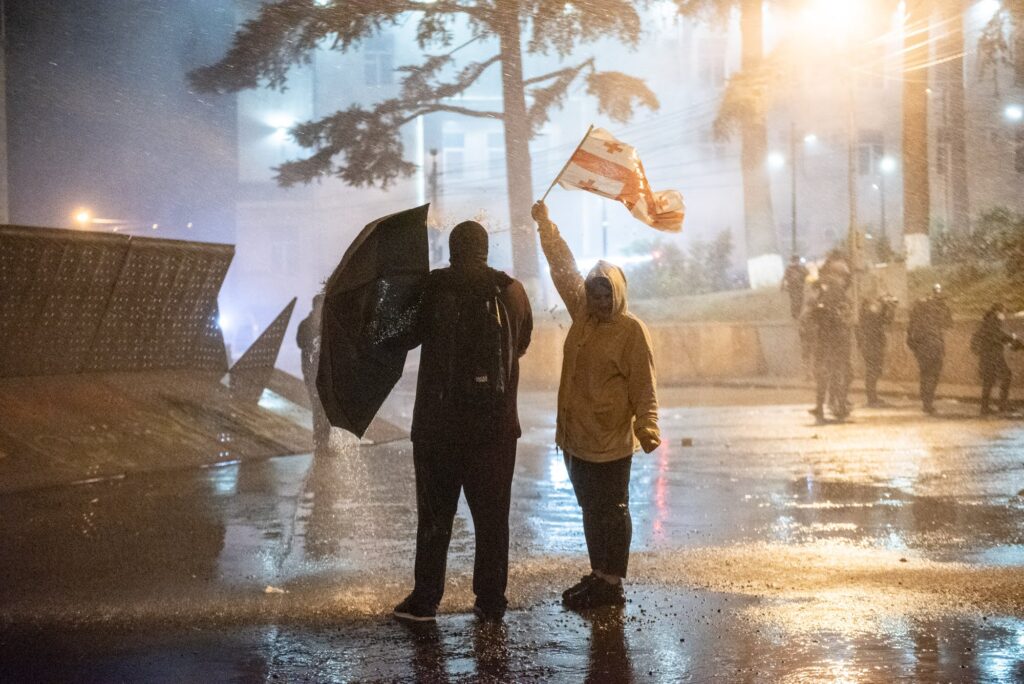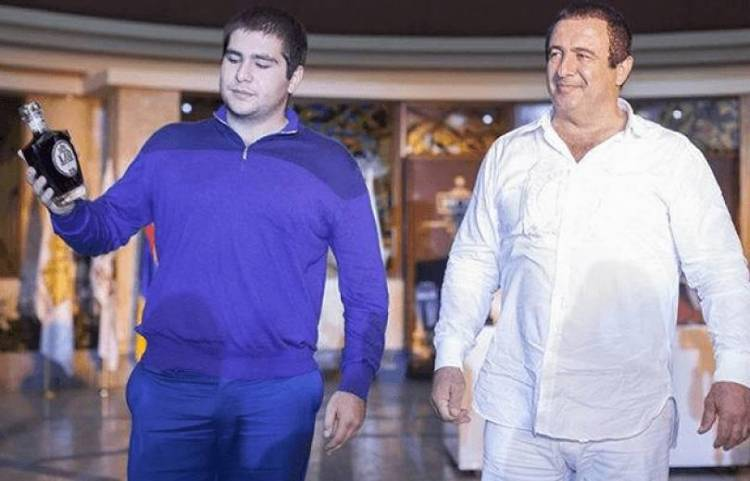The move follows days of massive protests in the capital, as well as widespread international condemnation.
[Read more on OC Media: Georgian foreign agent law to be dropped after second night of protests rock Tbilisi]
Of the 58 MPs present for the vote on Friday, 35 voted against with one in favour. The vote took place immediately upon the start of the session, without debate.
The crowds gathered outside parliament met the news of the vote with celebrations.
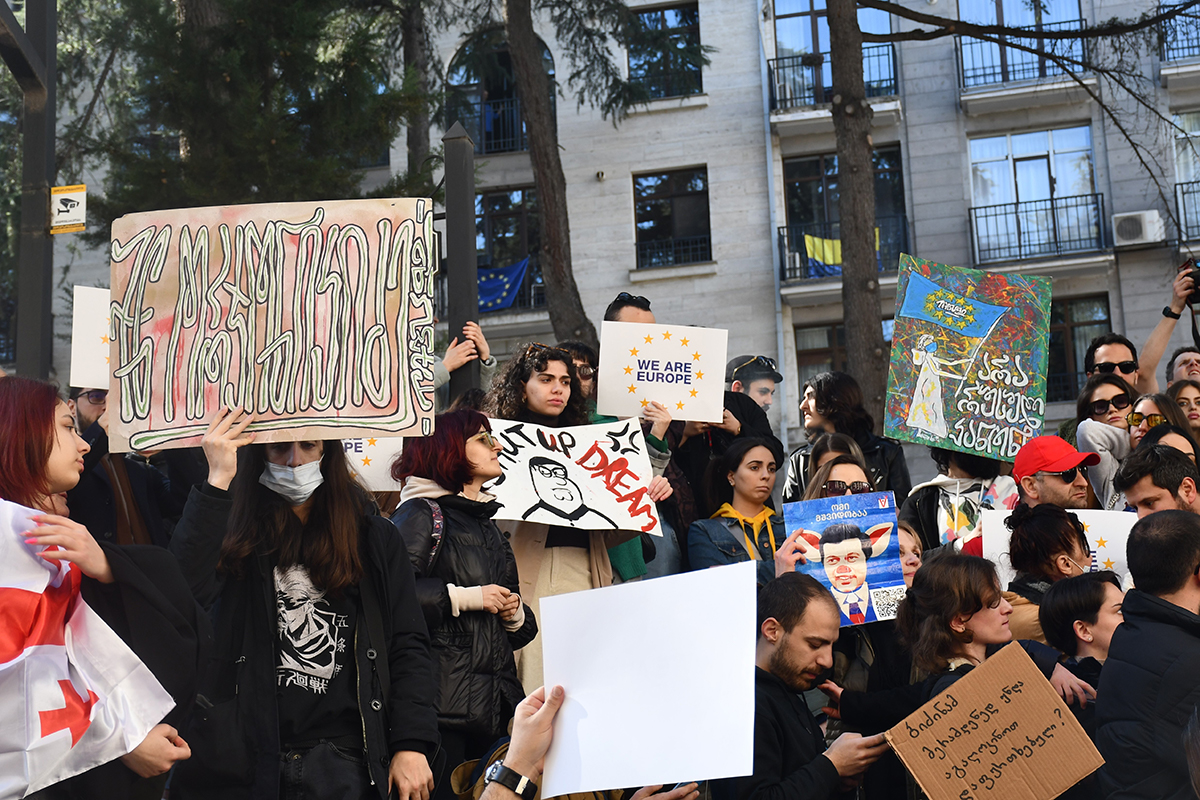
The ruling party announced they were dropping their support for the bill on Thursday morning, just hours after the previous night’s protests ended. The party had initially said they could not schedule a second reading of the bill to vote it down for over a week, insisting it would be legally impossible to expedite it.
After protest leaders and opposition figures expressed concern they may be attempting to play for time, the party called an extraordinary session of parliament to take place on Friday.
Minutes after the vote, French President Emmanuel Macron posted on Facebook in Georgian hailing Georgians’ ‘commitment to democratic values and freedom of the press and association’.
The EU and Western countries had been outspoken in their condemnation of the bill, stating it posed a threat to Georgia’s democracy as well as the country’s hopes for EU membership.
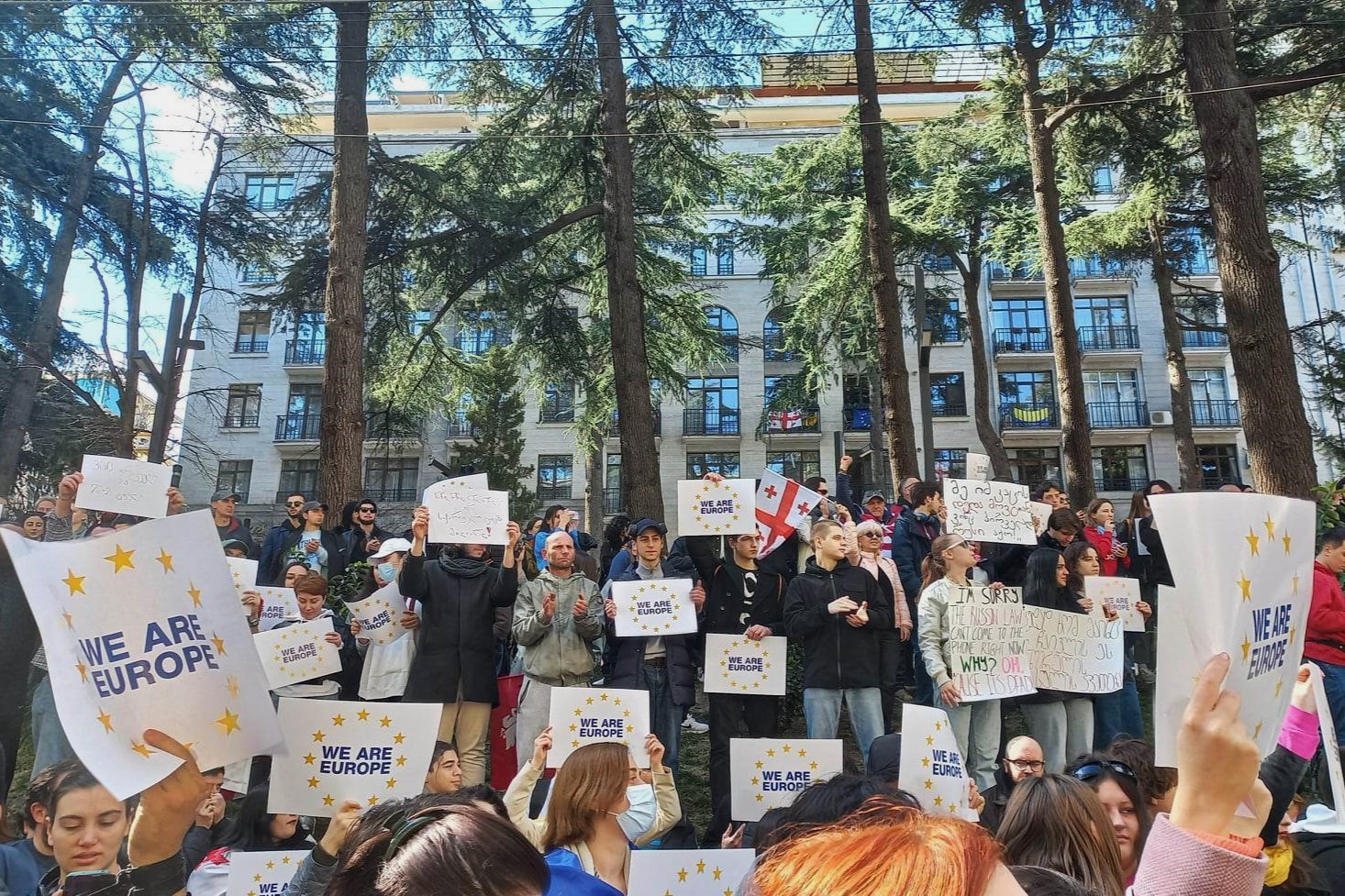
Following the vote, Georgian Dream chair Irakli Kobakhidze continued to defend the legislation. He claimed that the very existence of the draft law has already exposed non-governmental groups as ‘agents of foreign influence’ who engaged in calling fair elections a ‘fraud vote […] cursing of the Church, and LGBT propaganda’.
The bills would have required civil society groups and media organisations who receive over 20% of their funding from abroad to register as ‘agents of foreign influence’ and to submit to monitoring by the Ministry of Justice. Failure to comply would have meant large fines or prison time. The bills was similar to a foreign agent law signed into law by Vladimir Putin in 2012, which has since been used to crush civil society in Russia.
Detentions and use of force
Despite the Interior Ministry’s announcement that it had released all 66 individuals, protesters continued to demand that the authorities drop administrative offences against them.
The Interior Ministry claimed on 10 March that 58 of its employees were injured on 7 March and vowed to pursue all those implicated in attacking them with the ‘full extent of the law’.
The ministry’s employees may themselves be implicated in unlawful actions as Special Investigation Service said they are looking into reports of misconduct against protesters.
On 9 March, Marie Struthers, Amnesty International’s Director for Eastern Europe and Central Asia said that ‘in many instances, the use of force by police was neither proportionate nor necessary and failed to minimise harm and injury’.
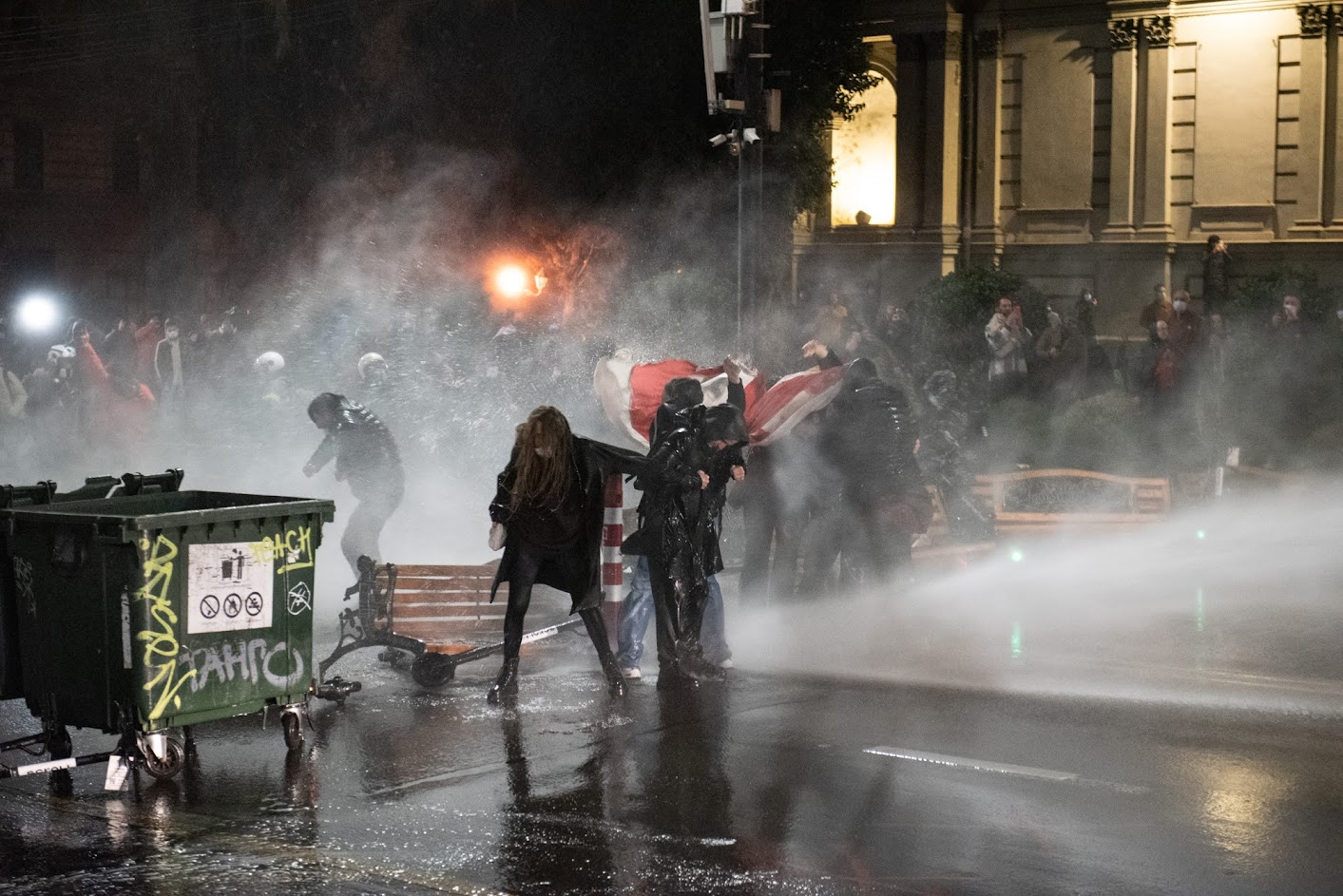
Guram Matskhonashvili, a theatre director, claimed that he was deprived of food during his 36 hours of detention, while videos emerged showing riot police assaulting protesters during the protest.
Georgian media advocacy group Mediaombudsmeni reported at least 13 incidents of parliament security or police officers outside it obstructing reporters during 2—9 March.




 10 March 2023
10 March 2023
